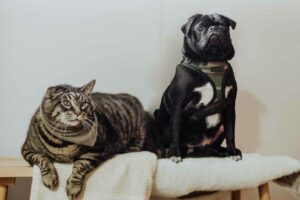If you Google “Chow Chow breed of dog” as I just have, you get the following: “Aggression is the biggest issue with Chows, though it is a problem that can be avoided. Chow Chows need to be socialized very early and very often to allow guests into the home.” As a person who rescues rather than purchases Chows, I’ve inherited a broad spectrum of dogs with and without early socialization. My first Chow, a mix who was barely three months old when I adopted him and had lived entirely out of doors, was socialized by me. He was Mister-Laid-Back, without an aggressive bone in his body. The rest of my Chows, purebreds, came either from puppy mills or from other horrid or questionable circumstances and their temperaments ranged from mostly sweet to decidedly iffy – to outsiders. A few of the articles from my Google search mentioned that some insurance companies won’t cover homes where a Chow is present because they’re considered high risk dogs. I have a hard time swallowing that. But it is a fact of life about Chows that they choose one or two people to be close to (usually one) and everyone else is either tolerated or considered threatening. To outsiders they are like bees: if you don’t bother them, they won’t bother you. This is the story of what it’s like to be a Chow’s chosen One. If you live alone or are in need of a support dog, a Chow will form an unshakeable bond with you and take care of you, in good times and bad.
I stumbled into Chow Chow guardianship by accident, when I was in grad school in Colorado in the early ‘90’s. I already had a dog, a German Shepherd named Wolfie, who fell in love with my boyfriend and regarded me as the stern one who filled her bowl every day and dragged her to the vet for shots. I thought Wolfie needed a friend. I let my neighbors know that I was at least mildly interested in acquiring another dog. Two or three weeks later, I answered my doorbell to find a neighbor girl with a ball of fur in her arms. “He needs a new home,” she said. He was living on the end of a chain in a backyard where the little kids beat him with sticks and threw rocks at him, she told me. He never had food or water when she walked past the yard in the alley between the houses. He was going to grow up to be vicious, just like his mother, Julie, who was a Rottweiler/Shepherd mix also living in that yard on the end of a chain. (His sire was a Chow.) “Will you take him?” His tail gave a tentative little wag, and that was the extent of his lobbying effort. Apparently unaware of the precarious state of his affairs, he was no suck-up. And it turned out that his affairs were indeed in a precarious state: after living with me for one week, he caught Parvo between his initial shot and the booster, and if not for a student loan that I had just deposited into my checking account, his three-month-long life would have ended on the spot. It was $1100 very well spent. Bear lived 14 years, and died during a walk in the woods after a lifetime of showing me uncommon devotion. Uncommon, because I didn’t yet know that that’s just how Chows are. They attach to one person with what can only be described as zeal. It can be a bummer for the rest of the family, whom they treat with mild interest or flat-out indifference. What does this uncommon devotion look like? When I was pregnant with my son, Bear mistook the big bubble hanging off my ribs for an attacker and charged me as I rose out of the lake in my big-mama swimsuit. Bear laid on my feet on the living room floor for the first five hours of my labor. When I brought the baby home from the hospital, Bear rose up on his hind legs to see what I was holding and then began licking me (Chows don’t lick) on my legs as I crossed the threshold, and then on my arms and legs when I sat down on the couch with my son. He licked me, and my son when I let him, for three months. I went on a cruise for my 40th birthday, and Bear sat in the spot where he last saw me for most of the week, having to be coaxed inside to eat. Bear was never on a leash because the place he most wanted to be was by my side. He could (and did) climb eight-foot chain link fences to follow me when I needed him to stay home. And Bear was a Chow mix. I had him the longest of any dog so far, so I don’t have comparable stories to tell of my purebred Chows. One had to be rehomed because, after living with us for a week, that zealous attachment took place and he began biting my son in an effort to protect me from him. I should note that this dog had spent the first two years of his life locked on a front porch with only another Chow for company, never the human inhabitants of the household, so he had zero socialization. I was amazed at how quickly and completely he attached himself to me. The other purebred Chow, a lovely little lady named Fern, stayed with the family who cared for her after I had back surgery and was learning how to walk again. They wouldn’t (couldn’t) give her up after six months. And now I have Ace, a four-year-old male purebred whom I adopted six weeks ago from a woman who had to go back to work and didn’t want him to have to live in his crate ten hours a day. He was not properly socialized with humans outside his family unit. His first response upon encountering a new person is to growl. No teeth baring, no barking, just a low growl that is nonetheless quite intimidating, so I’ll never be able to take him to the pet store. This is a real shame because Ace would thoroughly enjoy the experience and he needs the enrichment. He was intact until a month ago, and I’m hoping that some of the growling behavior will subside now that there’s no more testosterone in his system. As far as I can tell, Ace took the rehoming experience almost completely in stride. His attachment to me, like the other purebred male mentioned above, was immediate and intense. He follows me everywhere, even up and down the stairs when I’m only going up to fetch something or use my bathroom. (Ah, that’s one of the play activities that Chows do not participate in: fetch. Chows generally don’t play.) Ace’s response to being rehomed at the age of four surprised me somewhat. Unless he’s just the strong, silent type who doesn’t show his emotional distress, or unless I just happen to be a Supreme Chow Whisperer, Ace sized up the situation almost immediately and his genetic predisposition to attaching himself to one person kicked in and saved him from feeling sad or lost. It seemed as if he was too busy following me around to spend much time in reflection about the change in his circumstances. I almost typed out that I’m sure he missed his other mama at first, but I’m not sure he did. And this is the reason I believe Chow Chows are so good for people living alone or those who need a support dog: Chows will devote themselves to the One they’re with, no matter what. If you are the One (and you become the One by being the person who spends the most time with a Chow), you don’t have to worry about being rejected or jilted by a Chow, because they are hard-wired to attach themselves to you. This may sound impersonal, but it’s not. Chows aren’t gregarious dogs who jump on you when you get home or smother you with kisses at the front door. They stay where you left them, and wait for you to come back, and then follow you around like a rug. Wherever you go, they follow. When you get up for a beer or to go to the bathroom, they heave themselves up and follow you and then drop to the floor at your feet. You get used to it. You find yourself depending on it. Do Chows show affection? Definitely, by presenting themselves for petting (in their own time) and sometimes even offering their bellies for a rub. Some people liken Chows to cats for this reason.
There is one thing that excites them: “Upon realizing that exercise is a daily occurrence, a Chow-Chow will tend to be more assertive with owners in anticipation of such activities.” This, from Wikipedia, is a massive understatement. Ace becomes agitated at the sight of me pulling on my boots and is whining, sliding on the hardwood floor, and bouncing off the front door by the time I’ve got the leash in my hands. He sticks his neck out for me to attach the leash to his collar but is usually too excited to wait for the operation to succeed, so runs to the door three or four more times before I can hold him still enough to click it into place. He squirms out the door ahead of me and yanks me into the courtyard. Then, the heat and humidity are usually sufficient to calm him down for the walk. Even shorn of his lion’s mane and luxuriant coat, he suffers in the summer as much as I do. But he loves our walks, even though they take the same route around my little townhouse community, three times a day. I don’t feel comfortable taking him to the dog park because of his growling, and it’s too hot (August in Georgia, USA) for us to go to any of the hiking trails yet. He thrives on the routine. He’s memorized little patches of grass where apparently there are daily deposits of dognews. He knows where there are likely to be cats to lunge at and of course he has his favorite places to poop. He lives for these walks. And when we get home, he hurls himself at his water dish and then collapses on the cold floor of the kitchen.
I work at home, so Ace is my constant, ever-present companion. After six weeks, I know what to expect from him. He’s a textbook Chow. If you’re looking for a dog to love and protect you above all others, choose a Chow. Be sure to get a young one, and be sure to do the all-important socializing so you can avoid the problem of growling that I’m having with Ace. Allow yourself to bask in the knowledge that you are the whole world to your Chow; enjoy being the chosen One.






